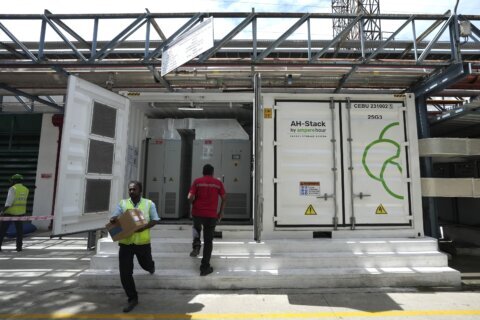Living with your parents is nothing new, but in recent years there has been an uptick in the number of people staying at home. A Pew Research Center study from 2020 found the percentage of young adults from 18 to 29 living with their parents at an all-time high.
Even in the years following this spike at the beginning of the pandemic, it seems young adults especially are taking up residence with their folks to save a few bucks. A June 2023 Empower survey found 1 in 5 GenZers were living with their parents to save money. With inflation and housing costs still so high, it’s no surprise.
Living with your parents can be a great way to save money — but keep in mind there are some financial downsides to it.
Financial Pros of Living With Your Parents
Not every parent-and-child living situation will be the same, so the savings you’ll see by might vary. For instance, some parents still charge their adult children rent or a portion of bills, while others trade the space for help around the house.
Regardless of your situation, living with your parents has the potential to be a mutually beneficial financial scenario, says Carmen Alderete, financial advisor at Edward Jones.
Here are some financial benefits that can come from living with parents:
1. You’ll Save on Rent
Perhaps the most obvious financial benefit of living with parents is savings on rent and bills.
With rent taking up a major percentage of many people’s budgets — the expert rule of thumb is 30% of your income or less — that can be a big savings, even if your parents still charge you a small amount.
[Read: How Much Rent Can I Afford?]
You can use the money you would have spent on bills to pay down other debt, like student loan payments.
“Given the high costs of education, if you graduated from college and have significant student loans to repay, living at home so you can get a jump-start on paying them down is a good idea,” says Eric Mangold, founder of Argosy Wealth Management.
“By living with your parents, you can also start to save in your job’s retirement plan too. This way, you can save and pay down your student loan debt,” he adds.
2. You Can Buy in Bulk
Buying in bulk can be a great money-saving technique for groceries and other household essentials — and it becomes more accessible in a household with more people. Share a Costo or Sam’s membership with the rest of the house so you can all save on essentials.
3. You Can Help With Housework
“Instead of your parents always helping you, you get to help them (assuming they’re older and can’t do as much for themselves anymore),” Jonathan Merry, CEO and founder of Moneyzine, says.
Having more hands to help with cleaning and other housework can be a money saver as well. This is especially true if you have older parents who need additional support — you don’t have to outsource that cost.
4. You’ll Have Time to Research Your Options
Another financial pro to living with your parents is that it buys you time. By not having to rush into a lease or mortgage, you can time the market for the best deals, saving for the exact place you want rather than taking what’s available when you need a home.
Alderete recommends scaling up your budget each month so you can adjust from paying no rent to your new normal.
“You can start looking at affordable apartments you want to move into. Start by paying half that rent to your parents — ask them to save it for you. Then, in three to six months, increase the rent to 75%, then 100%. Allow yourself time to get used to living within the budget you’ll have once you move out,” she says.
[READ: The 10 Best Apps for Finding Your Next Apartment.]
Financial Cons of Living With Your Parents
Clearly, living with your parents can help you save money and prioritize other financial goals. But the scenario also comes with some drawbacks.
Not only do you risk your ability to grow your own credit score through bill payment history, you could hinder your own financial independence and fall into a “status quo” of having others shoulder financial decisions, Alderete says.
Consider these financial cons of living with your parents before you move back in:
1. You’ll Build Credit History More Slowly
Available credit and payment history are two important factors in building a good credit score, and both can be negatively impacted if someone else is getting credit for housing costs. Odds are, even if you pay some bills to your parents, it isn’t your name on the account. Plus, building positive credit history takes time, and the longer you delay living on your own, the less time you have to do that.
A mortgage payment you always pay on time is a great way to show you’re a responsible borrower. Paying rent can help boost your credit score, too. Even utility payments and other household bills can impact your score, thanks to services like Experian Boost.
2. You’ll Give Up Your Financial Independence
“Living by yourself can teach you some great lessons — especially in terms of financial decision making — and make you extremely happy and satisfied,” Merry says.
This might seem like a small loss when compared with the actual dollars and cents savings of not paying rent, but failing to develop financial independence can result in disastrous costs later in life.
“Living with parents may inadvertently create a comfort zone that hinders the development of financial independence,” Merry says.
[READ: 15 Steps to Achieve Financial Freedom.]
Should I Move Back In With My Parents to Save Money?
Deciding if you should move back in with your parents to save money is a personal decision that will depend on your relationship and the kind of agreement you work out together.
“If you have parents that charge you rent with the intent of saving that money (preferably in a money market or equivalent vehicle) while you live with them, it’ll help build the habit of saving, paying rent, without the pressure of losing the roof over your head. Then, once the kid decides to leave, the parent can gift that money back to help with deposit, moving out, etc.,” Alderete says.
There are plenty of potential benefits to moving home — especially if you have student loans or other debt you want to prioritize paying down, or if you haven’t found a place of your own at the right price.
Still, make sure you still have credit cards or other accounts in your name so your credit history doesn’t suffer, and don’t forget that building your own financial strategy is still important.
More from U.S. News
How to Save Money: 10 Expert-Backed Ways
Money Habits to Start Right Now
How to Automate Your Savings — And Why It’s a Good Idea
Financial Pros and Cons of Living With Your Parents originally appeared on usnews.com







